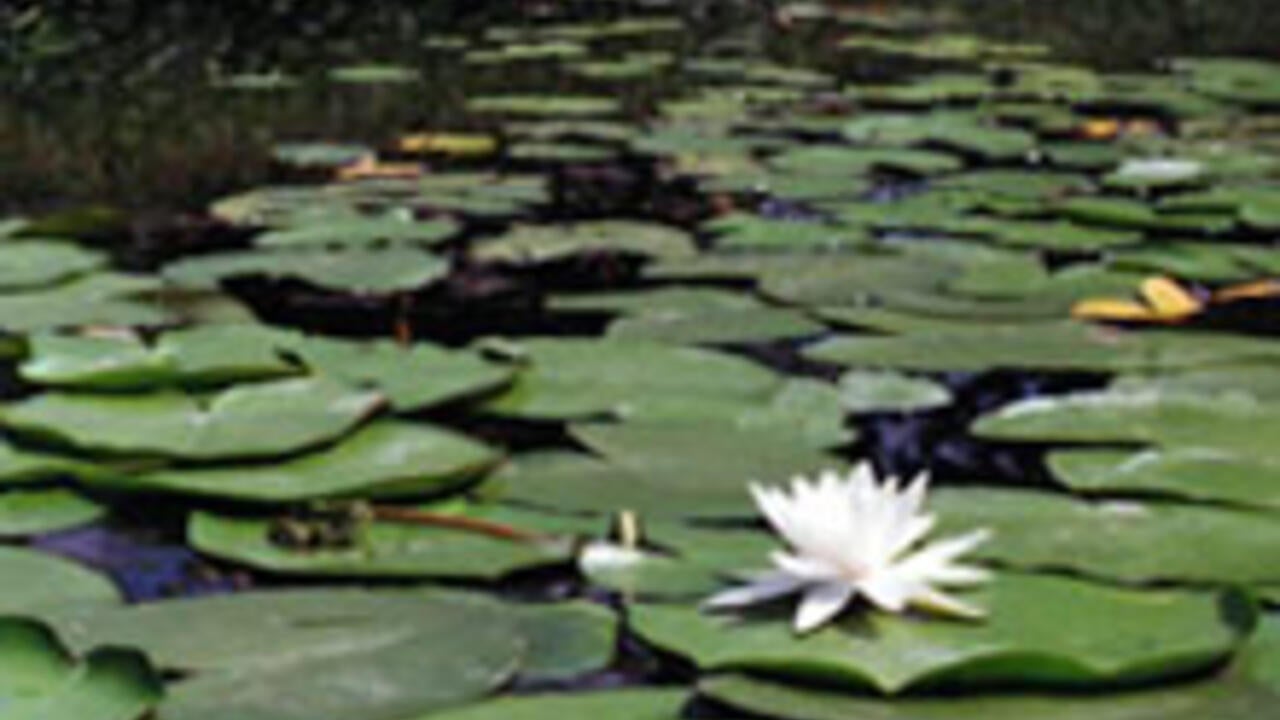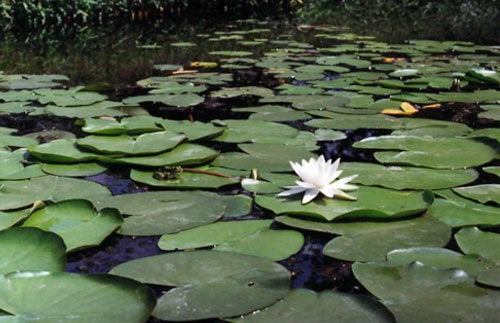
University of Waterloo celebrates World Wetlands Day
Wetlands experts speak about the importance of wetlands to a healthy environment and economy

Wetlands experts speak about the importance of wetlands to a healthy environment and economy
By Staff Faculty of ScienceThe University of Waterloo’s Ecohydrology Research Group is celebrating World Wetlands Day by hosting a symposium where experts will speak about the role wetlands play in safeguarding our environment and economy.
“Wetlands provide some of the highest value of ecosystem services per hectare of any land use,” says Phillippe Van Cappellen, Canada Excellence Research Chair and head of the Ecohydrology Research Group. “We want to highlight their local importance, but also Canada’s role on the international stage as protector of this undervalued resource.”

An abundance of water lilies rather than algae indicates a healthy wetland ecosystem.
World Wetlands Day is an annual international celebration commemorating the signing of the Ramsar Convention on Wetlands, an international treaty with 168 contracting parties committed to protecting more than 200 million hectares of designated wetlands worldwide.
Overall, Canada is home to a surprising 25% of the world's wetlands, mainly located in the boreal forests.
A morning session where Van Cappellen was scheduled to talk to middle school students was cancelled because of school closings in the region due to severe weather. Wetlands provide numerous services such as water purification, flood control, recreation and biodiversity. Just for the Waterloo Region alone, the value of these services is estimated to be several hundreds of millions of dollars each year.
“Wetlands are vital for a healthy local environment and economy,” says Van Cappellen. “It’s important we pass on this knowledge to our future generation of citizens and decision makers.”
The symposium will feature distinguished lectures from experts on wetlands and highlight wetlands-related work by researchers at the University of Waterloo, The Wildlife Conservation Society of Canada, the University of Saskatchewan and McMaster University.
A poster session and reception will follow the afternoon presentations.
The day’s events conclude with an evening distinguished public lecture by Stockholm Water Prize laureate, Professor William Mitsch, entitled, “Phosphorus and nitrogen and carbon, Oh My! The catchment and global roles of wetlands in mitigating these pollutants.”
Registration for the public lecture is closed, however, you can watch the public lecture online.
World Wetlands Day is supported by the Waterloo’s Water Institute and the Faculty of Science.

Read more
And a new model for how quantum research is shared — opening doors for the next generation of scientists and entrepreneurs

Read more
Here are the people and events behind some of this year’s most compelling Waterloo stories

Read more
Meet five exceptional Waterloo graduate students crossing the convocation stage as Class of 2025 valedictorians
The University of Waterloo acknowledges that much of our work takes place on the traditional territory of the Neutral, Anishinaabeg, and Haudenosaunee peoples. Our main campus is situated on the Haldimand Tract, the land granted to the Six Nations that includes six miles on each side of the Grand River. Our active work toward reconciliation takes place across our campuses through research, learning, teaching, and community building, and is co-ordinated within the Office of Indigenous Relations.